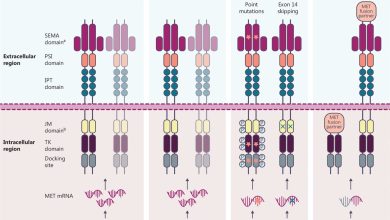Study Shows Remote MBI Treatments Can Help Alleviate Pain

As the search for a universally effective pain management intervention continues, researchers are looking at just about everything. That’s good. The more they look, the more they find. One of the more recent findings involves remote mindfulness-based interventions (MBIs) that seem to work quite well.
Researchers from three VA facilities began their research with the understanding that MBI treatments for pain management are already proven effective. But the researchers acknowledged that such treatments are exceedingly difficult to produce at scale. So they decided to offer them via telehealth to learn whether or not they were just as effective. It turns out they are.
What the Research Revealed
Researchers enrolled 811 veterans with moderate to severe chronic pain in their Learning to Apply Mindfulness to Pain (LAMP) study. The study ran from November 2020 to May 2022. Each patient was assessed at outset, 10 weeks, 6 months, and 1 year. In addition, participants were divided into two groups:
- Group MBI – The first group participated in video-based MBI treatments on a predetermined schedule. They watched pre-recorded MBI videos followed by discussions with train facilitators.
- Self-Paced MBI – The second group was offered the same MBI resources in an asynchronous way. In other words, they were allowed to work through the educational videos at their own pace. They were offered three facilitator calls as well.
Researchers concluded that participants in both groups demonstrated significant improvement in pain intensity, function, fatigue, sleep issues, and depression. No measurable differences in efficacy were noted between the two MBI groups. Finally, researchers noted that participants did better with MBIs than patients receiving more traditional pain treatments.
What It All Means
So, what does it all mean? It means that chronic pain patients do not have to physically attend MBI sessions at a hospital or clinic to benefit from the treatment. They do not even have to participate in remote MBI sessions as a group. If necessary or preferred, patients appear to benefit just as much from individual, self-paced MBI interventions.
For the record, MBI treatments are based on the practice of mindfulness. Mindfulness is the practice of training oneself to be present in the moment without any judgments whatsoever. From a pain management perspective, mindfulness manifests itself in concentrating on the here and now without making any judgments about pain or what it feels like.
Mindfulness can help alleviate chronic pain by taking a person’s mind off it. It is really no more complicated than that. It works because a person’s thoughts and feelings regarding pain are directly related to the pain experience. Here is a simple illustration: a person who expects to experience severe pain at the dentist’s office probably will. It’s a self-fulfilling prophecy because the patient’s thoughts and emotions are already geared toward severe pain.
Alternatives to Pain Medication
MBIs are seen as an important alternative to traditional pain medication. According to the experts at Lone Star Pain Medicine in Weatherford, TX, there are other alternatives. They are clinicians have been known to recommend treatments like kyphoplasty, epidural injections, trigger point injections, prolotherapy, and even spinal cord stimulation. Lone Star doctors say that prescription painkillers don’t have to be the first line of defense against chronic pain.
As for MBIs, we already have evidence demonstrating that they can help alleviate chronic pain. Now we have evidence suggesting that patients don’t have to experience MBI either in a group setting or in a physical clinic. Remote MBIs appeared just as effective. This is good news in the sense that it opens the door to scaling up MBIs without having to significantly increase resources.








